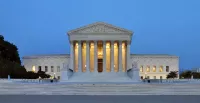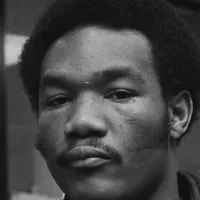Citizenship denotes membership and allegiance to a sovereign state. It signifies a legal bond between an individual and a country, granting certain rights and responsibilities to both parties. These rights typically include the right to live and work in the country, the right to vote, and the right to protection under the law. Responsibilities may include obeying the laws of the state, paying taxes, and serving on a jury if called upon. Citizenship can be acquired through birth, naturalization, or other means as determined by the laws of each country.
1906: Denial of Naturalization Rights
In 1906, laws passed by the US Congress included clauses that denied immigration and naturalization rights to people based on broadly defined racial categories.
1917: Denial of Naturalization Rights
In 1917, laws passed by the US Congress included clauses that denied immigration and naturalization rights to people based on broadly defined racial categories.
1918: Russian Constitution of 1918
In 1918, revolutionary Russia granted citizenship to foreigners living within the Russian Soviet Federative Socialist Republic engaged in work and belonging to the working class. The constitution recognized equal rights for all citizens, irrespective of race or nationality, and established voting rights for men and women over eighteen.
1920: National Origin Quota System
In 1920, the Immigration and Nationality Act of 1952 fixed "at a rate of one-sixth of one percent of each nationality's population in the United States in 1920".
1921: Canada departs from the principle of nationality
In 1921, Canada departed from the principle of nationality being defined in terms of allegiance.
1922: Ozawa v. the United States
In 1922, the Supreme Court case Ozawa v. the United States clarified the meaning of the phrase "free white persons," ruling that ethnically Japanese people were not "white persons" and were therefore ineligible for naturalization under U.S. law.
1923: U.S. v. Bhagat Singh Thind
In 1923, the Supreme Court case U.S. v. Bhagat Singh Thind clarified the meaning of the phrase "free white persons," ruling that ethnically Indian people were not "white persons" and were therefore ineligible for naturalization under U.S. law.
1924: Denial of Naturalization Rights
In 1924, laws passed by the US Congress included clauses that denied immigration and naturalization rights to people based on broadly defined racial categories.
1924: Indian Citizenship Act Passage
In 1924, the Indian Citizenship Act was passed, granting full US citizenship to Native Americans.
1935: Irish Free State introduces its own citizenship
In 1935 the Irish Free State was the first to introduce its own citizenship. However, Irish citizens were still treated as subjects of the Crown, and they are still not regarded as foreign, even though Ireland is not a member of the Commonwealth.
1935: Reich Citizenship Law of 1935
In 1935, The Reich Citizenship Law established racial criteria for citizenship in the German Reich, resulting in Jews and others unable to "prove German racial heritage" being stripped of their citizenship.
1946: Canadian Citizenship Act of 1946
In 1946, The Canadian Citizenship Act of 1946 provided for a distinct Canadian Citizenship, automatically conferred upon most individuals born in Canada, with some exceptions, and defined the conditions under which one could become a naturalized citizen.
1948: British Nationality Act 1948
In 1948, the concept of Commonwealth citizenship was introduced in the British Nationality Act 1948.
1949: Ireland Excluded from the Commonwealth
In 1949, Ireland was excluded from the Commonwealth because it declared itself a republic. However, Ireland is generally treated as if it were still a member, and its citizens are not classified as foreign nationals in the United Kingdom.
1952: Immigration and Nationality Act of 1952
In 1952, the Immigration and Nationality Act abolished racial and gender restrictions for naturalization explicitly. However, the act still contained restrictions regarding who was eligible for US citizenship and retained a national quota system which limited the number of visas given to immigrants based on their national origin, to be fixed "at a rate of one-sixth of one percent of each nationality's population in the United States in 1920".
1955: Indian Citizenship Act
In 1955, the Indian Citizenship Act, the first law in Indian history, established rules for citizenship, including jus soli, jus sanguinis, citizenship by registration, citizenship by naturalization, and citizenship by incorporation of territory.
1962: New Mexico Enfranchises Native Americans
In 1962, New Mexico became the last state to enfranchise Native Americans, allowing them to exercise their full rights as citizens.
1965: Immigration and Nationality Act of 1965
In 1965, the Immigration and Nationality Act drastically altered the immigration quota systems in favor of a less discriminatory system.
1987: Joseph Carens' Argument on Citizenship
In 1987, moral philosopher Joseph Carens argued that "citizenship in Western liberal democracies is the modern equivalent of feudal privilege—an inherited status that greatly enhances one's life chances. Like feudal birthright privileges, restrictive citizenship is hard to justify when one thinks about it closely".
1992: Constitution of Ghana Article 41
In 1992, the Constitution of Ghana, Article 41, was established obligating citizens to promote the prestige and good name of Ghana and respect the symbols of Ghana. Examples of national symbols includes the Ghanaian flag, coat of arms, money, and state sword. These national symbols must be treated with respect and high esteem by citizens since they best represent Ghanaians.
2010: Approval of Mercosur Citizenship Statute
In 2010, citizenship of the Mercosur was approved through the Citizenship Statute and should be fully implemented by the member countries in 2021 when the program will be transformed in an international treaty incorporated into the national legal system of the countries, under the concept of "Mercosur Citizen".
2012: New Leaving Certificate Exam Subject
In 2012, A new Leaving Certificate exam subject with the working title 'Politics & Society' is expected to be introduced to the curriculum sometime after 2012 by the National Council for Curriculum and Assessment (NCCA) in Republic of Ireland.
2021: German Law on Naturalization of Nazi Victims
In 2021, the German government passed a law that entitled victims of Nazi persecution and their descendants to become naturalised German citizens.
2021: Mercosur Citizenship Statute implementation
In 2021, the Mercosur Citizenship Statute should be fully implemented by the member countries, transformed in an international treaty incorporated into the national legal system of the countries, under the concept of "Mercosur Citizen".
Mentioned in this timeline
The United States of America is a federal republic located...
Russia officially the Russian Federation is a transcontinental country spanning...
Canada is a North American country the second largest in...
Ghana officially the Republic of Ghana is a West African...
Mexico officially the United Mexican States is a North American...

A supreme court the court of last resort in many...
Trending

Tyrese Kendrid Maxey known as The Franchise and Mad Max is a professional basketball player currently with the Philadelphia ers...

3 months ago Upstart's Q3 Earnings: Mixed Results, Soft Q4 Guidance, and Stock Slides After Announcement.

6 months ago Diego Pavia's NSFW Pregame Comments Spark Controversy in Netflix SEC Football Show

7 months ago Schwarber shines as All-Star replacement; Wheeler opts out for club's sake.

9 months ago George Foreman: A remarkable life beyond the Rumble in the Jungle.

Karen Huger is an American television personality best known for her role on the reality TV series The Real Housewives...
Popular

Thomas Douglas Homan is an American law enforcement officer who...

Martin Luther King Jr was a pivotal leader in the...

XXXTentacion born Jahseh Dwayne Ricardo Onfroy was a controversial yet...

William Franklin Graham III commonly known as Franklin Graham is...

Jupiter is the fifth and largest planet from the Sun...

Instagram is a photo and video-sharing social networking service owned...